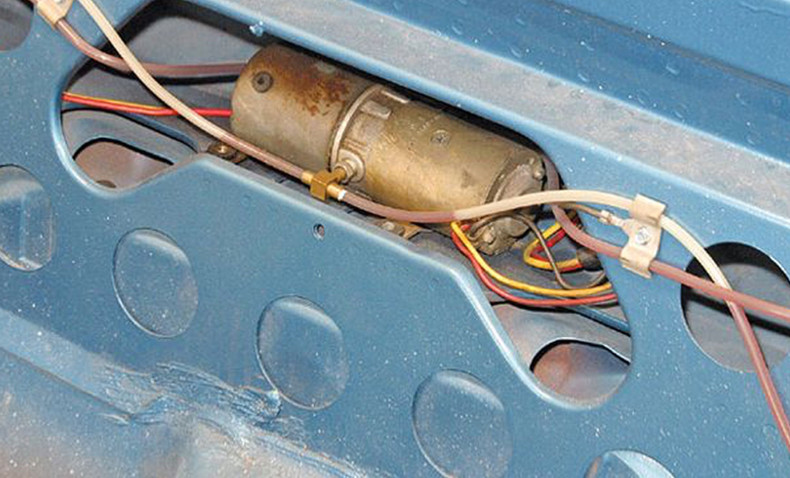How to Install Top Cylinders & Pumps
Tools & Supplies - 3 quarts of fluid. Cars older than 1953 use DOT-3 brake fluid. Cars 1953 and up use brake fluid or automatic transmission fluid. Cars prior to 1953 may use ATF ifall new hoses have been installed. CAUTION - brake fluid destroys paint. A turkey baster is a great tool to fill pumps with a filler plug. You may also use an oil can or bleeder system.
Caution - Never totally fill a reservoir with fluid. Cars with a filler plug should remain 25% empty. The air gap is required to prevent system damage or failure. Firewall pump reservoirs should remain 10% empty.
If you are installing just 1 cylinder, the rod on the new cylinder must be either in or out - the same as the unit remaining in the car. All cylinders are shipped with the rod retracted. To extend, put 50-60 pounds of air pressure into the bottom fitting of the cylinder to extend the rod.
You will use your motor/pump to fill the cylinders. Do not force any hydraulic parts this will cause damage.
- Install all new parts in the car. Do not connect the rod ends to the top. If only 1 cylinder is being replaced, disconnect the rod of the remaining cylinder from the top. You are going to run the rods in and out without having to wrestle with the top. You are going to be "shooting blanks." CAUTION: As rods go up and down, make sure no harm comes to either the rods or to the top or top frame.
- Using the pump, run the rods out so they can be attached to the top. Bolt the rods to the top. Assuming there are no other problems, your top will now work.
- When you are no longer able to add fluid, retract the rods INTO the cylinders. Check the fluid level one last time filling if required but leaving the reservoir 25% empty. Put the plug into reservoir.
- Run the rods all the way in and out sereral times. At the end of each cycle, check the fluid level. Fill as required, leaving reservoir 25% empty.
- Repeat step 2 and 3 until rods have traveled all the way into or out of the cylinders. If rods are all the way out, do not run the pump too long as cylinders are not built with stops in them. Running the pump too long will eventually pull the cylinders apart.
- Run the pump for 10-20 seconds. You are emptying the reservoir into the cylinders. The rods will start moving as fluid fills the cylinders. One rod will always go up and down first, this is normal.
- Fill the reservoir 3/4 full with fluid (to the bottom of filler plug hole). Leave the reservoir plug out and do not put back in until you have finished. Put a rag under the hole to catch overflow that will occur as system fills.
